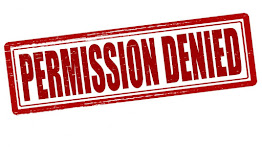Dallas Court of Appeals, No. 05-20-00596-CV (August 12, 2020)
Chief Justice Burns (Opinion, linked here), and Justices Whitehill and Nowell
In a very short opinion, the Dallas Court of appeals rejected an insurer’s petition for a permissive interlocutory appeal. The briefs explain Taiwo was injured in a traffic accident allegedly caused by another driver. He settled for the limits of that driver’s insurance policy, an amount less than his purported damages. Taiwo then sued his own insurer, Safeco, relying on his UM/UIM coverage. Safeco sought summary judgment, arguing Taiwo was required to obtain a judicial determination that he was legally entitled to recover from an uninsured or underinsured motorist before proceeding against his own insurer—something he had not done. See Brainard v. Trinity Universal Ins. Co, 216 S.W.3d 809 (Tex. 2006). Taiwo, however, moved to postpone the summary judgment hearing in order to take discovery, and the trial court granted that motion.
Safeco sought permission to pursue an interlocutory appeal of that ruling under Civil Practice and Remedies Code § 51.014(d) & (f). It argued the trial court’s decision “turned on” three “controlling questions of law”—i.e., (1) whether an insured must obtain a judicial determination that he was legally entitled to recover from an uninsured or underinsured motorist before he can proceed against his own insurer on UM/UIM issues, and (2) whether a court can defer dismissal or abatement based on that ground and (3) allow discovery to proceed, without first resolving that threshold issue. The trial court granted permission for the appeal, pursuant to § 51.014(d). But the Dallas Court of Appeals rejected Safeco’s petition and denied the appeal under § 51.014(f).
The appeals court held that “to invoke this court’s permissive appeal jurisdiction, the trial court must make a substantive ruling on the controlling legal issues presented in the petition for permissive appeal.” It found the trial court had not done that here. The record reveals that although the trial court’s order refers to “the controlling questions of law decided by this order,” it actually contains no such decisions on those questions—at least no express decisions. The proposed form of order tendered by Safeco included such rulings, but the trial court manually lined through those passages and inserted the more generic statement that its order was predicated on “the argument and authority in the motion, the response, and papers on file.” This, the appeals court apparently concluded, did not constitute the “substantive ruling on the controlling legal issues” necessary to support a permissive appeal.



